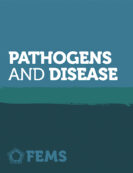Italian Society of Agro-Food and Environmental Microbiology (IT-SIMTREA)
SIMTREA is working towards some main strategic priorities:
- strengthening scientific relationship with other scientific societies and institutional bodies
- consolidating scientific excellence and consequently contributing to the science of microbiology through high-quality and innovative research and publications
- consolidating internationalization among others through the Microbial Diversity Conferences
- increasing support for Early Career Scientists
Membership
Membership location: national
Membership scope: a nonprofit membership organization for scientists who work in the fields of agricultural, environmental and food microbiology. The Society promotes the understanding of microbiology to a diverse range of stakeholders, including policy makers, students, and teachers.
| Membership type | fee (currency) | NOtes |
| Full member | 25 (€/year) | Although there not restrictive requirements, the CV and the scientific activity (list of publications) are evaluated by the SIMTREA Committee. |
| Young member | 25 (€/year) |
How to join
On www.simtrea.org, press the botton “iscrizioni”
Contact point: FEMS Delegate
Prof. Ilario Ferrocino
Request additional contact details via fems@fems-microbiology.org
History
FEMS Member Society since 2011
SIMTREA was formed on 15 February 1994 in Milan (Italy). The Italian Society of Agro-Food and Environmental Microbiology (SIMTREA) is a nonprofit membership organization for scientists who work in the fields of agricultural, environmental and food microbiology. It has about 246 members coming from universities, industry and research institutions. Since 2011, SIMTREA organizes the International biennial Conference on Microbial Diversity (the MD series with the first being the MD-2011 Conference) aimed to promote discussion and exchange of information and experiences regarding the complexity intrinsic in microbial biodiversity.
All but one of the FEMS journals are now fully open access (OA), with one journal, FEMS Microbiology Letters remaining a subscription journal with free-to-publish and OA options. Open access is key to supporting the FEMS mission of disseminating high quality research as widely as possible: when high quality, peer reviewed sound science is open access, anyone, anywhere in the world with an internet connection, can read it.







